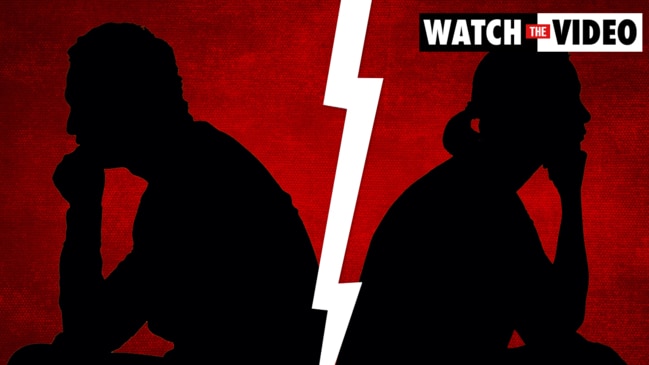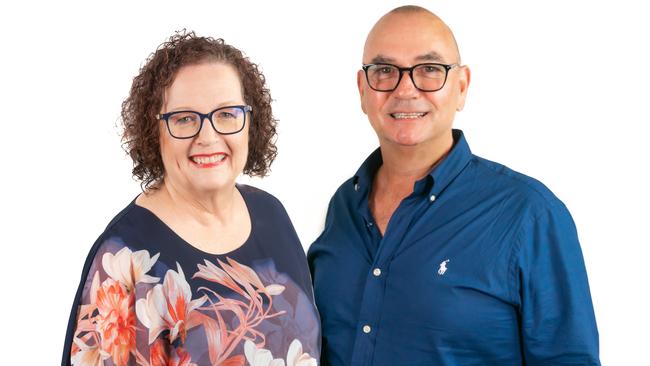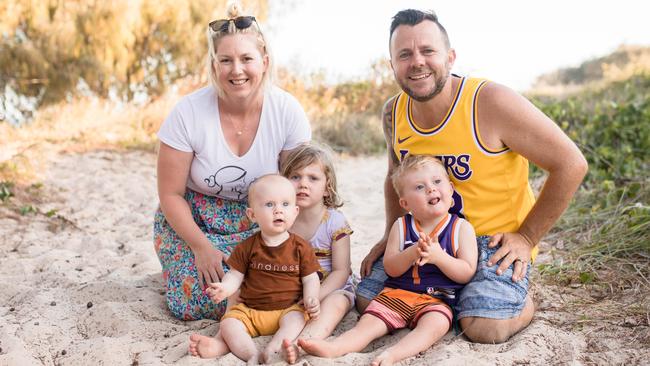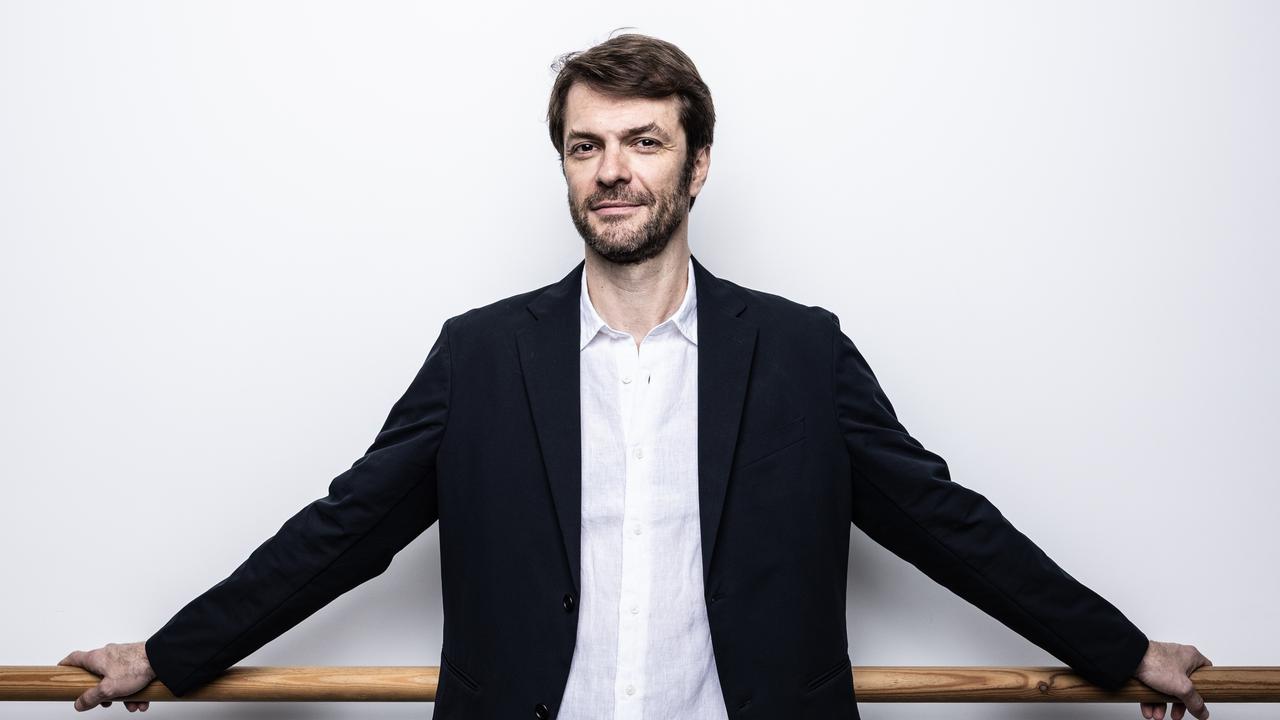Love quiz: Find out how well you know your partner
How well do you know your partner? Take our quiz to find out.

U on Sunday
Don't miss out on the headlines from U on Sunday. Followed categories will be added to My News.
The number of couples hoping to save their relationship has surged amid a spike in break-ups during COVID-19.
Lockdowns, job losses and financial insecurity put significant pressures on couples throughout the pandemic, according to Queensland relationship experts Trish Purnell-Webb and John Flanagan.
Flanagan, a mental health social worker, says the impact is still being felt with his practice experiencing a three-month wait for couples to seek help.
“Couples, relationships, marriages and families are used to a routine where people go to school, work, clubs and that completely shut down,” he says.
“It created a whole lot more pressure and for those relationships where there were some minor fractures, those fractures became wider.”

The Queensland therapists hope to arm couples with the tools to build stronger connections throughout their two-day program, created on the evidence-based research of US relationship gurus John and Julie Gottman.
“There is always an artistic and emotional connection in relationships and we bring into it a science,” says Flanagan.
“The effectiveness of our two-day workshop is equivalent of six months of relationship therapy, it’s a fast track to improving your relationship.”
Purnell-Webb, a clinical psychologist, says strong relationships are built on the basics as she describes some of the most common mistakes couples make.
“When somebody feels criticised all they can do is defend and attack and unless you have other skills to identify and communicate what you need, it worsens over time and builds hurt feelings and resentment that leads to disconnection,” she says.
“There tends to be a tennis match in relationship where the partner lobs something, the other hits one back quickly and so on, both are looking for the opportunity for the grand slam and to win the argument and be right.
“The much better process is to suspend your own judgment and opinion for five to 10 minutes to explore your partner’s thinking and understand the position they have and make sure they know you’ve understood their intention.”
Flanagan says the mishandling of conflict and poor communication often leads to relationship breakdowns.
“Many of the couples that we work with are tired of getting locked into the negative interaction and that creates distance,” he says.
“When you’re starting to move into flight mode, the best tip I can give someone to manage conflict is to keep calm, self-soothe, take a break and once your heart rate has decreased, have the ability to listen and empathise to the person you care about.”

Gold Coast couple Annika and Michael Morgan have been married for almost six years and between juggling their jobs and busy family life with their three children, Elska, 4, Phoenix, 2 and Zephyr, 11 months, Annika says, naturally, they come across challenges.
“Sometimes we don’t see eye-to-eye and we can have some big fights every now and then but we usually recover pretty well,” says Annika.
“At first we’re both very stubborn and not wanting to admit wrong. I want to talk about it in detail and cry it out but he wants to shut it all in and walk away and have space, which sometimes makes it worse as we are wanting to resolve it differently but he eventually comes around and helps it out and I eventually stop being so emotional and see reason enough to work it out too.”
After navigating three pregnancies within four years and the whirlwind that comes with raising small children Annika admits their relationship can feel less of a priority.
“We don’t really have parents or grandparents who help with the kids so we are constantly being parents and that can be tiring and take away a bit of that initial love, lust and fun in a relationship,” she says.
“But we have a strong love and foundation that gets us through and we know this is the hard part and once the little ones are more independent there will be a bit less stress.”
For Michael, he focuses on the simple things.
“I always tell Annika I love her and we always give each other kisses and cuddles, and always show and express how grateful I am for everything she does, well I try to anyway,” he says.
“From her cooking dinner to her staying up late to look after our babies, I try to show how much I appreciate her.”

Purnell-Webb says these subtle gestures go a long way in strengthening relationships.
“The simplest things people can do is make time for each other and really ask your partner what you can do to make them feel more loved or cared about,” she says.
“Check in on how their day was and listen without giving advice.
“Pay attention to what is going on around you and pitching in and giving a helping hand, that goes a long way in feeling supported.”
Throughout COVID-19’s peak last year, Brisbane couple Danielle and Adam Capps faced their fair of challenges.
Adam, a pilot, lost his job in March and the pair gave birth to their first child, Mila, in July in the midst of the pandemic. Yet Danielle says they only became stronger and their strength was built on healthy habits.

“We make an effort to go for a walk every second day,” she says.
“We put Mila in the pram and she’s really happy and chilled out there so it’s our time to talk, catch up and be together, we really appreciate that time and we don’t want to take that time for granted, it’s so special.”
Purnell-Webb encourages this type of behaviour and reminds long-term couples not to overlook what was once second nature.
“Make time to hang out just the two of you and enjoy yourself, use that time to laugh and play together to create a good feeling in a relationship,” she says.
“Make an effort to give appreciation often, it’s the small things like this that create trust, security and saying things like ‘thank you’ when the lawn is mowed or the car door was opened.”
The Art and Science of Love workshops is on March 27-29 at the Royal on the Park, Brisbane City, relationshipinstitute.com.



